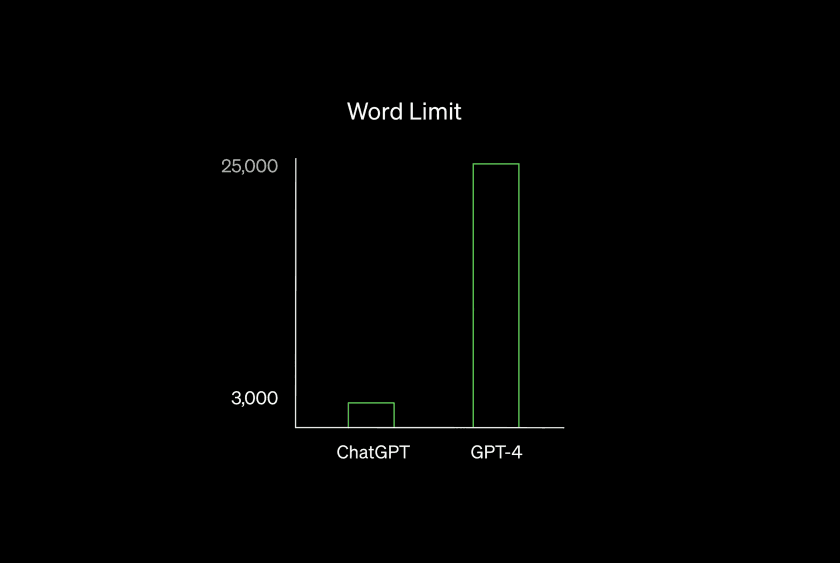As artificial intelligence continues to advance, the question of whether OpenAI will replace Google as the leading search engine has become a hot topic of discussion.
What is OpenAI and what are its capabilities?
As an AI expert, I have been keeping a close eye on OpenAI ever since it was founded in 2015 by tech luminaries such as Elon Musk, Sam Altman, and Greg Brockman. OpenAI is an artificial intelligence research laboratory consisting of some of the brightest minds in the field. Its mission is to create safe and beneficial AI that can help humanity solve some of its most pressing problems.
OpenAI’s capabilities are vast and impressive. The organization has made significant contributions to natural language processing, computer vision, robotics, and reinforcement learning. Some of its notable achievements include developing GPT-3, one of the most advanced language processing models to date, creating robots that can learn complex tasks through trial and error, and training AI agents to beat human players at Dota 2.
Google’s current domination of the search engine market
It’s no secret that Google currently dominates the search engine market. According to StatCounter Global Stats, Google holds a whopping 92% market share globally as of August 2021. This means that for every ten searches conducted online, nine are done using Google.
Google’s dominance can be attributed to several factors such as brand recognition, user trust, and a vast database of indexed web pages. However, it’s worth noting that Google has faced criticism over privacy concerns related to data collection and targeted advertising.
Potential benefits of using OpenAI for search purposes
One potential benefit of using OpenAI for search purposes is improved accuracy in natural language processing. GPT-3 has shown remarkable abilities in generating coherent sentences that mimic human writing styles. This could lead to more relevant search results based on user queries.
Another benefit is increased transparency regarding data privacy and security. Unlike Google, which has faced scrutiny over data collection practices in the past, OpenAI has emphasized its commitment to responsible AI development and transparency in its operations. This could lead to increased user trust and adoption of OpenAI-powered search engines.
Differences between OpenAI and Google in terms of data privacy and security
One significant difference between OpenAI and Google is their approach to data privacy and security. Google has faced criticism over its collection of user data, which it uses for targeted advertising. In contrast, OpenAI has emphasized its commitment to responsible AI development that prioritizes user privacy.
OpenAI also operates on a different business model than Google. While Google generates revenue through advertising, OpenAI is primarily funded by investors who share the organization’s mission of developing safe and beneficial AI. This means that OpenAI may be less incentivized to monetize user data compared to Google.
Limitations of OpenAI compared to Google’s vast resources and infrastructure
One limitation of OpenAI compared to Google is its relatively limited resources and infrastructure. While OpenAI has some of the brightest minds in the field working for it, it lacks the vast database of indexed web pages that Google has accumulated over the years.
Additionally, while GPT-3 is an impressive language processing model, it still falls short in some areas such as understanding context and generating coherent responses consistently. This means that OpenAI-powered search engines may not be able to match the accuracy and relevance of search results provided by Google.
OpenAI’s competition with Google in natural language processing and machine learning
OpenAI’s accomplishments in natural language processing have put it in direct competition with Google. GPT-3’s ability to generate coherent sentences that mimic human writing styles puts it ahead of many other language processing models currently available.
However, Google is not one to back down from a challenge. The company has made significant strides in natural language processing through its BERT algorithm, which can understand the context of words in a sentence. Additionally, Google has vast resources and infrastructure that allow it to continue innovating and improving its AI capabilities.
Companies that have started using OpenAI instead of Google for their search needs
As of now, there are no companies that have completely replaced Google with OpenAI for their search needs. However, some startups such as Diffbot and Neeva have incorporated OpenAI-powered language processing models into their search engines to improve accuracy and relevance.
It’s worth noting that these companies are still relatively small compared to Google and may not have the same level of resources or infrastructure. However, their adoption of OpenAI-powered search engines could signal a shift in the industry towards more responsible AI development and increased transparency regarding data privacy.
User perception of accuracy and relevance of search results from OpenAI vs. Google
User perception of the accuracy and relevance of search results from OpenAI versus Google is difficult to gauge at this point. While GPT-3 has shown impressive abilities in generating coherent sentences, it still falls short in some areas such as understanding context.
Additionally, user perception is heavily influenced by brand recognition and trust. Google’s dominance in the market means that many users may feel more comfortable using its search engine compared to an alternative like OpenAI.
However, if OpenAI continues to make significant strides in natural language processing and gains more recognition as a trustworthy organization committed to responsible AI development, user perception may shift towards its favor.
Steps taken by Google to maintain dominance in the face of competition from OpenAI and other emerging technologies
Google is not one to rest on its laurels when it comes to maintaining dominance in the market. The company has made significant investments in AI research and development through its subsidiary DeepMind, which has made notable contributions to fields such as reinforcement learning.
Additionally, Google has continued innovating in areas such as natural language processing and computer vision through its BERT algorithm and Google Lens, respectively. The company has also expanded into other areas such as cloud computing and smart home devices to diversify its revenue streams.
The potential impact on the advertising industry if there is a shift towards using OpenAI for search
If there is a significant shift towards using OpenAI for search, it could have a significant impact on the advertising industry. Google’s primary revenue stream comes from targeted advertising based on user data collected through its search engine.
However, if OpenAI-powered search engines prioritize user privacy over data collection, it could lead to less targeted advertising and potentially lower revenues for advertisers. This could force advertisers to shift their strategies towards more traditional forms of advertising such as television or print media.
Potential challenges that could arise if OpenAI were to replace Google as the primary search engine provider
One potential challenge that could arise if OpenAI were to replace Google as the primary search engine provider is the lack of infrastructure and resources compared to Google. While OpenAI has made significant strides in AI research and development, it still lacks the vast database of indexed web pages that Google has accumulated over the years.
Additionally, user perception may be a challenge for OpenAI. Many users are familiar with and trust Google’s search engine, which may make them hesitant to switch to an alternative like OpenAI.
Government or regulatory response to a single company like OpenAI gaining too much influence over online information access and distribution
If a single company like OpenAI were to gain too much influence over online information access and distribution, government or regulatory response would likely be swift. Governments around the world have already expressed concerns about tech companies’ power in controlling online information flow.
Regulators may take measures such as antitrust investigations or implementing regulations that require increased transparency regarding data privacy practices. Additionally, there may be calls for increased competition in the market to prevent any one company from gaining too much power.
The effectiveness of a hybrid approach combining elements of both Google and OpenAI for search purposes
A hybrid approach combining elements of both Google and OpenAI for search purposes could be highly effective. Google’s vast database of indexed web pages combined with OpenAI’s advanced natural language processing models could lead to more accurate and relevant search results that mimic human understanding.
Additionally, this approach could address concerns regarding data privacy by incorporating OpenAI’s emphasis on responsible AI development. This hybrid approach would require significant collaboration between the two organizations but could lead to a breakthrough in search engine capabilities.
User willingness to switch from Google to an alternative like OpenAI, or preference to stick with what they know
User willingness to switch from Google to an alternative like OpenAI is difficult to predict. Many users are familiar with and trust Google’s search engine, which may make them hesitant to switch to an alternative like OpenAI.
However, if OpenAI-powered search engines continue making significant strides in natural language processing and gain recognition as a trustworthy organization committed to responsible AI development, user perception may shift towards its favor. Additionally, if concerns regarding data privacy continue growing, users may be more willing to switch to an alternative that prioritizes their privacy.
In conclusion, it’s difficult to predict whether OpenAI will replace Google or not. However, one thing is for sure that AI technology is rapidly advancing and changing the way we use search engines. If you’re interested in exploring the possibilities of AI for your business, don’t hesitate to get in touch with us and check out our AI services. We’d love to help you stay ahead of the curve!

Will GPT replace Google?
At present, ChatGPT is not a substitute for Google. Search engines like Google are designed to scan billions of web pages to locate specific words and phrases, and are primarily used to locate websites and suggest potentially related pages.
Is OpenAI a threat to Google?
OpenAI is considered a possible threat to Google’s search engine due to the potential for artificial intelligence to create tools that could harm humans. Given the immense power of these technologies, caution is necessary, similar to the precautions taken by experimentalists handling hazardous materials. This concern was expressed on February 9, 2023.

Will AI replace search engines?
AI is not replacing search engines, but rather, it is enhancing their functionality and improving the precision of search results.
Is GPT-3 the most advanced AI?
Released in 2020, GPT-3 is currently the most advanced and powerful AI model in existence. It boasts an impressive 175 billion parameters – more than ten times larger than its predecessor, GPT-2.
Is Google worried about GPT chat?
In summary, it is unclear if Google is specifically concerned about ChatGPT, but there is competition between Google and OpenAI in the field of artificial intelligence. Both companies are significant players in AI and have made important contributions in creating natural language processing models. This statement was made on February 15th, 2023.
What is China substitute of Google?
Baidu is the major search engine in China, comparable to Google in the United States, and is widely used throughout the country.








